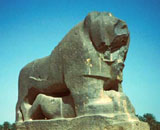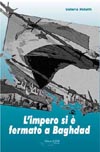September 19, 2014
Sixty percent of Palestinians once living in Syria are displaced within the country while more than 50,000 others have fled, but are barred from seeking asylum in their new countries
BOURJ AL-BARAJNEH - The United Nations says that more than 3 million Syrians have officially fled their country since the war began. This number does not include Palestinians who were born and grew up in Syria, and are on the run now too.
Maha, a 54-year old mother, is one such Palestinian. From a refugee camp in Dera’a, where the Syrian uprising first sparked in March 2011, she fled the fighting with her family for Lebanon.
Maha is currently living in an abandoned nursery in Beirut’s Palestinian refugee camp of Bourj al-Barajneh, bordering the Hezbollah stronghold of Dahiyeh.
Three families are crammed into the small space donated to them by the Palestinian armed faction, Fatah al-Intifada, based in Ein al-Helweih refugee camp in Sidon. They survive on handouts from the United Nations Relief and Works Agency (UNRWA).
"Here we don’t know anyone, and we feel they are not welcoming," Maha said about Bourj al-Barajneh. "When we walk down the street we hear people call, 'You Syrians - we don’t want you here.’"
Palestinians from Bourj al-Barajneh have bullied Maha’s children at their local UNRWA school, and neighbourhood boys beat up her 20-year old, previously tortured by the Syrian regime, for being 'Syrian.’
"We were born in Dera’a, our homes are in Dera’a, and it is much nicer than here," Maha reminisced. "We want to go back. We are lost. All the young people are tired and just want to go abroad."
This month, the international aid group, Oxfam, warned the international community that Syrian refugees are in desperate need: "A staggering 190,000 people have been killed and 6.5 million displaced inside Syria. And with 3 million refugees, it is now one of the biggest refugee crises since the end of the Second World War."
According to UNRWA, around 60 percent of Palestinians from Syria are now displaced inside the state, 42,000 have fled to Lebanon, 14,000 to Jordan and 840 are now in Gaza. There are smaller numbers in countries like Egypt, Libya and Turkey.
Barred from applying for asylum through the United Nations High Commission for Refugees (UNHCR) and relegated to UNRWA’s overstretched services, Palestinians from Syria find themselves hemmed in – unable to return to their destroyed homes and the violence, or to move away from often miserable confines in Lebanon.
Compounding their troubles, Jordanian government policy has barred Palestinians from crossing the Syrian border into Jordan since 2012, and a directive by Lebanon’s security forces this May rejected the renewal of residency permits, and requires Palestinians to obtain Lebanese visas in advance from Syria, a nearly impossible feat.
"Essentially, what we will have is those Palestinians from Syria who are living in Lebanon will be increasingly undocumented," said Lama Fakih, the Syria and Lebanon researcher at Human Rights Watch. "This greatly interferes with their ability to access public services, including the police, and creates a climate where individuals can be exploited, with inadequate protection mechanisms."
Now refugees are mostly crammed into overpriced, often rudimentary, dank cinderblock flats with little electricity and water; many of them in the country’s 12 already crowded and impoverished Palestinian refugee camps, like Bourj al-Barajneh and Shatila in Beirut.
Sylvian Perdigon, professor at the American University of Beirut, studies Palestinian communities in the more rural south Lebanon, and thinks they have a less sectarian mentality than in Beirut, or the north.
"When people first arrive, they stay with relatives who are welcoming," he explains. "However, over time, things become more difficult because of crowded conditions and work competition, they fight and have to move out and rent a place. This has developed a whole rental market."
Palestinians who fled Syria to Lebanon receive monthly payments from UNRWA of $100 per family, and an additional $30 per person for food. In reality, this money nearly always goes towards skyrocketing rents.
Palestinians - in addition to the over one million Syrian refugees now registered in Lebanon - are ripe for exploitation.
Perdigon would watch as men would be picked up outside Bour al-Shamali refugee camp in Lebanon’s south, to work in the orchards for 25,000 Lebanese lira ($16) per day. "Palestinians from Syria soon stood nearby, and asked to work for 10,000 Lebanese lira ($6) a day instead," he said. "This is a huge source of tension because they brought everyone’s rate down."
Mohammed was one-year old when his family fled to Syria from Haifa in 1948. Now he sits with his life-long Lebanese wife, Mariam, in a dilapidated walk up apartment in Bourj al-Barajneh.
Having suffered strokes and memory loss in recent years, Mohammed cries easily when he thinks about the home he and Mariam left eight months ago in the besieged refugee camp of Yarmouk. Militias have now looted everything they owned, and their neighbourhood is destroyed.
"Many were saying 'don’t leave – stay. It is history repeating itself. Don’t repeat 1948 again.’ This day was historical when we all left like that," Mariam said, remembering the image of one woman fleeing with only a white cat in a cage.
Mariam is a medical worker but can’t get a paying job, and instead borrows money to help pay their living expenses and for Mohammed’s medicine.
"The Palestinian population here is generally hospitable, but I prefer Palestinians from Syria," she said. "I know people who came and returned because they didn’t feel welcome here. We were spoiled in Syria. We want to go back. Yarmouk is our home," she said tiredly.
Now a night curfew governs their evening, and they worry about getting dragged into trouble with Lebanese security forces. The explosive fighting in Arsal along the border with Syria between Islamic militants and the Lebanese army has heightened tensions nationwide, and especially in neighbourhoods next door, like Dahiyeh.
"The future is bleak if you are Palestinian in Lebanon, because of the historic discrimination of Palestinians in Lebanon," said UNRWA spokesman Chris Gunness. "An added vulnerability is you that are not just from Syria, you are Palestinian from Syria. This makes your plight even harder."
*The names of Palestinians from Syria have been changed, to protect their identity.
Source
















